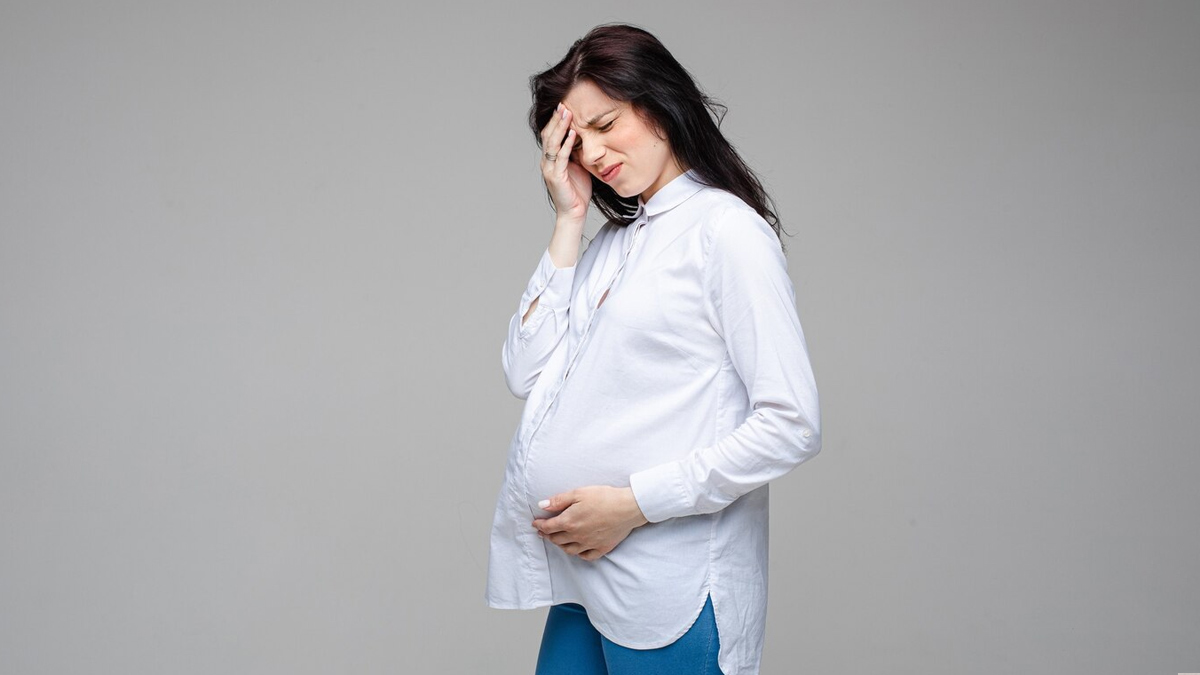
Pregnancy is a beautiful journey, but let's be real, it’s also filled with a fair share of aches and discomforts. If you're pregnant and experiencing strange sensations or unexpected pains, it's completely natural to wonder whether they are normal or not.
Table of Content:-
The OnlyMyHealth team spoke to Dr Sameep Bhujbal, Consultant - Obstetrics and Gynaecology, Jupiter Hospital, Baner, Pune, to understand which pregnancy pains are common and harmless and when they might signal something more serious.
Also Read: Why Should Women Go For Preconception Checkup? Here's What Expert Shares
Common Pregnancy Pains That Are Normal

Some common but harmless pregnancy pains include:
Abdominal pain: You may have intense, shooting sensations on either side of your abdomen, caused by tissue stretching as your belly grows.
Round ligament discomfort (the ligament that supports your uterus): This might cause sharp pain in your belly, hips, or groins. You may feel it on one or both sides of your body. It occurs most frequently throughout the second trimester.
Leg cramps: Leg cramps are most common in the second and third trimesters, and they typically occur at night. You may also feel cramps in your feet.
Backaches: When you carry too much weight in the front of your body, it strains your back muscles and drags your posture forward. The discomfort can range from mildly unpleasant to so severe that you need to see your physician. According to Dr Bhujbal, back pain is typical throughout pregnancy. Astudy published in BMC Pregnancy and Childbirth found that around 70% of pregnant women experienced low back discomfort.
Other prominent sites for aches and pains are the hips, wrists, and hands.
“Most of these types of discomfort peak around the end of pregnancy, in the third trimester. However, abdominal and pelvic pain can begin very early, in the first and second trimesters, as your muscles and ligaments move and stretch to accommodate your growing uterus,” notes Dr Bhujbal, referring to them as round ligament discomfort.
When To Seek Medical Attention?

Discomfort is one thing, but some symptoms can point to something more serious. “If you have persistent or severe abdominal pain, heavy bleeding, severe headaches, or unusual swelling in your hands or face, it’s time to call your doctor,” Dr Bhujbal advised.
Here are some red flags you shouldn’t ignore:
- Heavy vaginal bleeding
- Persistent or severe cramps
- Chest pain or breathlessness
- Severe headaches with vision changes
- High blood pressure (160/110 mmHg or higher)
- Sudden, extreme swelling in the hands, feet, or face
- Painful urination or excessive vomiting
“These symptoms may be signs of serious complications like preeclampsia, miscarriage, or even a rare ectopic pregnancy,” he says. Always trust your gut; if something feels off, it's worth a check-up.
How To Ease Common Pregnancy Aches

While pregnancy aches and pains are inevitable, the good news is that most pregnancy discomfort can be managed at home with a few tips:
- Change your posture; sit and stand with proper alignment to reduce strain on your back and abdomen.
- Staying hydrated and eating a well-balanced diet rich in fibre will help reduce stomach discomforts such as gas and constipation.
- Rest well, take regular pauses, and elevate your legs whenever possible.
- Gentle workouts, like prenatal yoga or walks, can help keep your muscles toned and supple, reducing the likelihood of stomach pain throughout pregnancy.
- A warm compress on your lower tummy helps relax and relieve muscle tension.
- Warm baths are another soothing alternative, but make sure the water is not too hot.
- Pregnancy support belts can provide great help, especially in the later stages of pregnancy when your enlarging uterus exerts more strain on your body.
Also Read: Nourishing Your Baby’s Brain: Expert Explains The Role Of A Mother’s Diet In Early Development
Conclusion
Pregnancy is full of changes and challenges. It’s perfectly normal to feel a bit sore or achy. But it’s also important to listen to your body. If something feels intense, out of the ordinary, or simply worries you, don’t hesitate to talk to your doctor.
“Routine check-ups are key,” Dr Bhujbal reminded us. “They help monitor not just your baby’s health, but yours too.”
So rest up, take care of yourself, and remember, every pregnancy is unique, and there’s no such thing as a silly question when it comes to your health.
Also watch this video
How we keep this article up to date:
We work with experts and keep a close eye on the latest in health and wellness. Whenever there is a new research or helpful information, we update our articles with accurate and useful advice.
Current Version